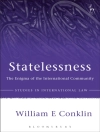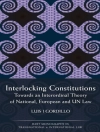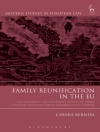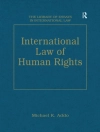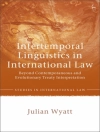From the United Nations to the International Bureau of Weights and Measures, the principles of international organizations affect all of our lives. The principles these organizations live by represent, at least in part, the principles all of us live by. This book quantifies international organizations’ affiliation with particular principles in their constitutions, like cooperation, peace and equality.
Offering a sophisticated statistical and legal analysis of these principles, the authors reveal the values contained in international organizations’ constitutions and their relationship with one another. When these organizations are divided into groups, like regional versus universal organizations, many new, seemingly contradictory, interpretations of international organizations law emerge. Through elaborate network representations, radar charters, k-clusters analyses and scatter plots, this book offers an unprecedented insight into the principles and values of international organizations.
สารบัญ
List of organizations studied
1 The principles guiding international organizations
2 The empirics of international organizational principles
3 Patterns of authority in international organizations’ constitutions
4 The jurisprudence of organizations’ aspirational values
5 Towards a new jurisprudence of international organizations law
6 Conclusion
Bibliography
Index
เกี่ยวกับผู้แต่ง
James D. Fry is Associate Professor of Law and Director of the LLM Programme in the Faculty of Law at the University of Hong Kong Bryane Michael is a Senior Fellow in the Faculty of Law at the University of Hong Kong Natasha Pushkarna is a Senior Fellow in the Faculty of Law at the University of Hong Kong


